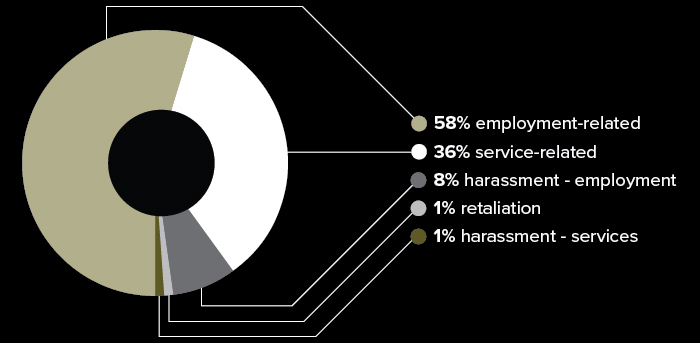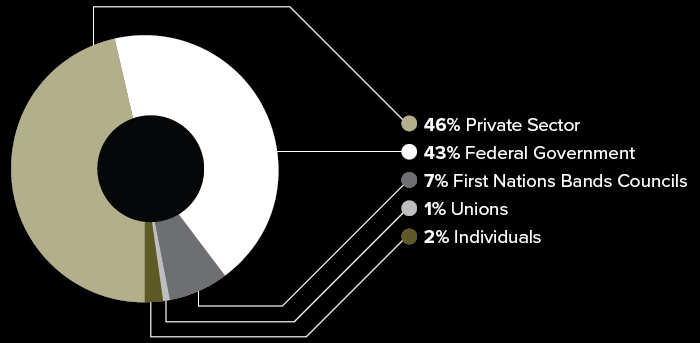By the numbers
The Commission reviews every complaint it receives, and tries to resolve as many as possible informally and quickly. In many cases, we refer the complaint to the appropriate dispute resolution process.
The statistics outlined in this section break down those complaints in 2019 that the Commission was able to mediate, investigate or litigate because they met the criteria outlined in Canadian Human Rights Act.
Throughout the process, Commission staff tailor the services they provide to best meet the needs of those asking for help. Whenever possible, the Commission encourages people to try to resolve their discrimination complaint informally and at the earliest opportunity. This often involves mediation.
When warranted, the Commission can refer the case to the Canadian Human Rights Tribunal for a hearing. In some cases, the Commission will participate in the hearing to represent the public interest.
The following numbers are related to complaints that met the requirements outlined in Canadian Human Rights Act.
36,000
people
contacted the
Commission to
complain in 2019.
|
Most were helped without needing to file a complaint.
1,203
complaints
were accepted
by the Commission
in 2019.
|
This is the highest in a decade.
What are the complaints about?

Who are the complaints about?

Mental health
Over half (53%) of disability
complaints were related
to mental health.
This represents 27% of
complaints accepted by
the Commission in 2019.
Intersectionality
42% of complaints
accepted in 2019 cited
more than one ground
of discrimination.
Harassment
13% of complaints
accepted in 2019 cited
harassment.
The number of complaints citing
disability, national or ethnic origin,
race, colour, religion,
and
sex
were
all the highest in a decade.
Disability

UP 36%
National or
Ethnic Origin

UP 91%
Race

UP 105%
Colour

UP 100%
Religion

UP 86%
Sex

UP 61%
Percentages based on number of accepted complaints in 2019 related to each ground compared to the ten-year average.
